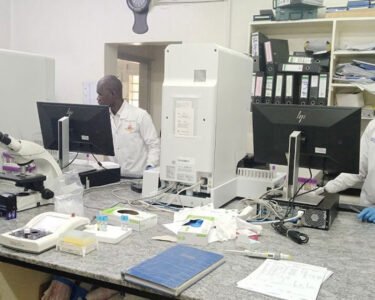When 26-year-old Sharon Nabirye began experiencing sharp abdominal pains during her internship, she thought it was fatigue or skipped meals. She ignored it, took a few painkillers, and went back to work. Three months later, she was rushed to hospital with a perforated ulcer she never made it out alive.
Her story is tragically common. Across Uganda, hospitals are reporting a worrying increase in young people suffering and dying from stomach ulcers, a condition once associated mostly with older adults.
Medical experts attribute the surge to a combination of stress, poor eating habits, and excessive self-medication. At Mulago National Referral Hospital, doctors say that almost half of young adults visiting the outpatient clinic with stomach pain test positive for peptic ulcers.
Latest
Police Raid Criminal Hideouts in Kampala, Mukono — 38 Nabbed
Three Arrested in Wakiso for Possession of Narcotic Drugs
URA Announces 100% Waiver on Mombasa Port Charges
Medical Students Protest ‘No Retake’ Policy, Demand Reforms
2,000 Wakiso Residents Win Relief as Minister Intervenes in Land Row
UPC Bets on Cattle Revival to Win 2026 Votes
Who Would Lose If Uganda Went to War With Kenya?
Uganda’s Coffee Breakthrough in China
Gold Scam Lands Kampala Businessman in Trouble
Uganda Shocks France in World Cup Debut to Reach Round 32
According to the Ministry of Health’s 2024 report on non-communicable diseases, ulcer-related complications were among the top five causes of hospitalization among urban youth aged 20 to 35.
Many young people are juggling long hours of work or study with little regard for nutrition. Street snacks, soda, and caffeine often replace balanced meals. Late-night eating, alcohol, and smoking worsen the situation.
At many pharmacies in Kampala, over-the-counter ulcer drugs like omeprazole and antacids are sold without prescription. While they offer temporary relief, doctors warn that long-term self-treatment masks symptoms and delays diagnosis.
Beyond diet, mental health is emerging as a hidden driver. Young people facing unemployment, school pressure, or financial instability are more prone to chronic stress which stimulates the stomach to produce excess acid.
Doctors advise that any persistent stomach pain, bloating, or nausea lasting more than two weeks should be checked by a professional. Simple tests can detect ulcers and the Helicobacter pylori bacteria, a common cause.
The Ministry of Health has urged young people to embrace preventive habits eating regularly, avoiding alcohol and tobacco, managing stress, and seeking timely medical attention.
For Sharon Nabirye’s friends and family, her death is a painful reminder that ulcers are not just “a simple stomach problem.” They can be silent killers claiming the lives of young people before their dreams ever take shape.
Follow our WhatsApp Channel for more… https://whatsapp.com/channel/0029Vb6TpGqLtOjKB7S8OI3d





